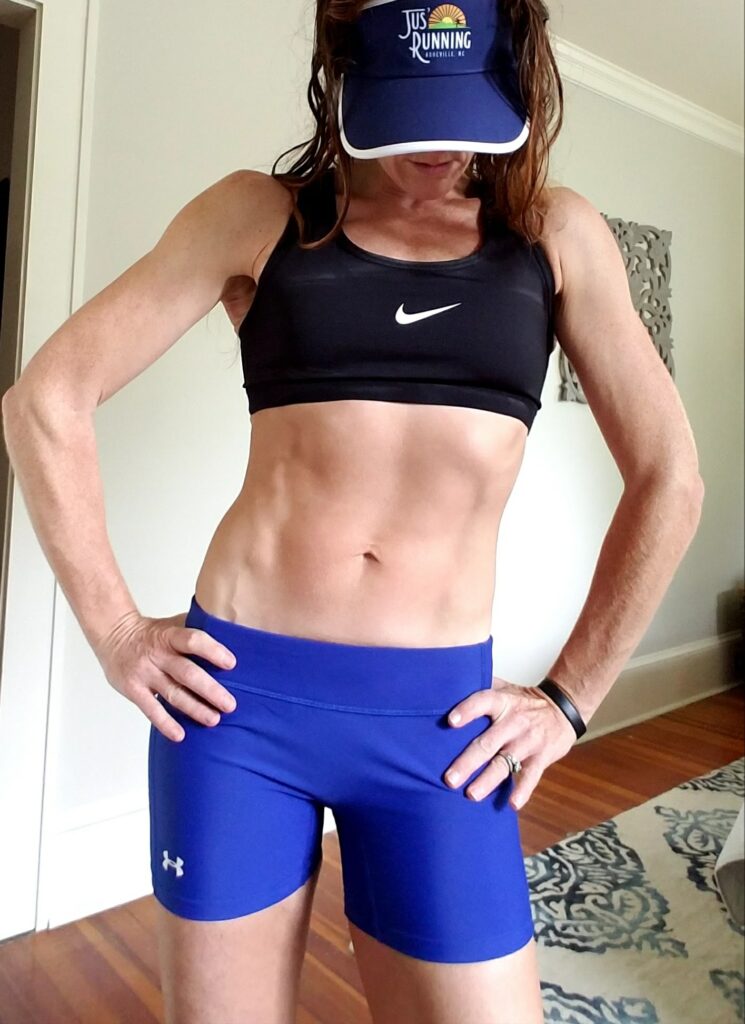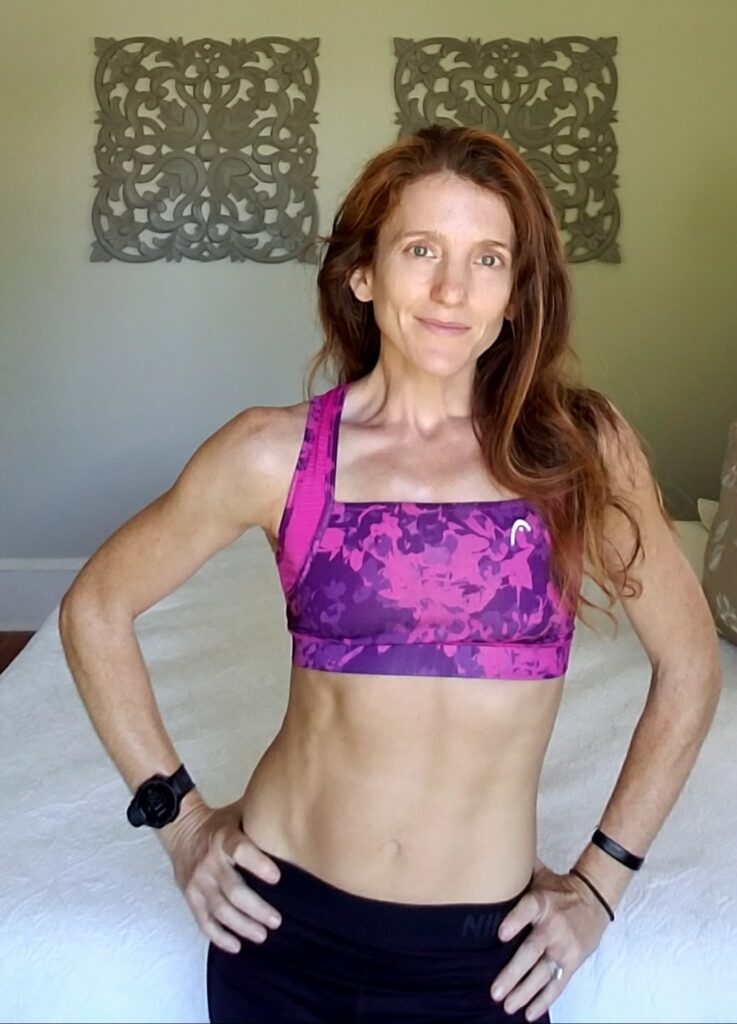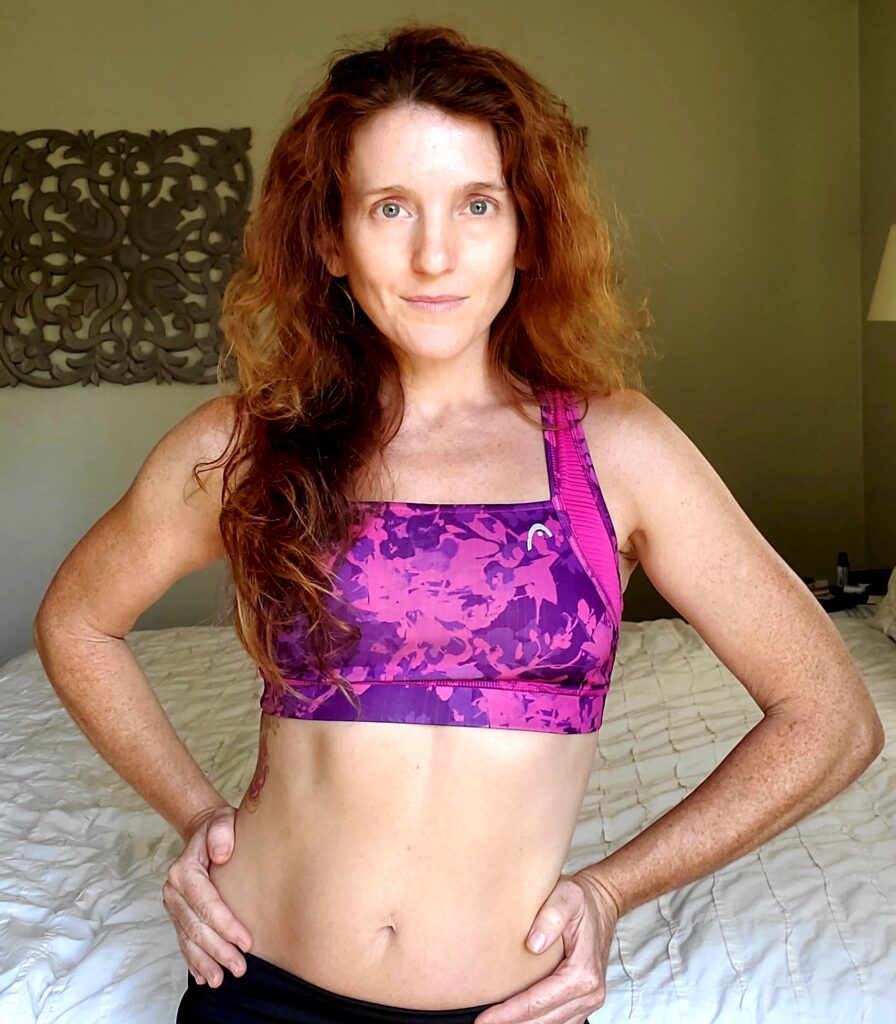At one point in my marathon training, I got down to 15% body fat. Although I had only lost a pound of weight in the year that I had last had my body composition measured at my local university, I had dropped about 2.5% of body fat and put most of that back on as muscle.

My Body Fat Rating on the printout I was handed went from “Ultra Lean” one year with “fat levels often found in elite athletes” to “Risky” for being too low the next year. I was still 8 pounds away at that point from being clinically underweight for my height, so I wasn’t concerned that I was doing any harm.
Instead, I was proud.
I was happy that my hard training schedule and my diligent tracking of my calories had worked to make me light and lean. I was convinced that now I could finally make a breakthrough in marathon racing because I was certifiably fit on paper and on the scale.
I was wrong.
It would take another two years to break 3 hours in the marathon and another 5 pounds gained, not lost, at least half of which was fat.
I needed to find my true healthy race weight.
It’s common advice in the running world that you will race your best when you are at your leannest, but not so lean that you don’t have enough muscle strength to power your legs. The so-called “ideal” race weight for runners is often very, very thin. What is often not talked about is what your life is like when you live to be lean.
I tracked every calorie in and every one out. I measured everything I ate and entered it into a popular food tracking app to make sure that not only was I just eating exactly what I “needed” and nothing extra, but also to make sure that my macronutrient profile was perfect for my activity level.
And it worked.
For each marathon I was thinner, leaner, and faster than the last. After the race I would take a couple weeks off and stop tracking my food to give myself a chance to recover and indulge a bit. I’d gain a little weight, of course, but I knew that I’d just do the same thing for the next training cycle and do it all over again with the same results.

But something started to change.
My body got wise to what I was doing and refused to play along with this nonsense. I could no longer drop weight as easily each cycle and so I did what every athlete does when faced with an obstacle: I doubled down and tried harder.
Because I was light and fit, my body needed fewer calories to perform its functions. I was now so efficient at running that my body didn’t need to work as hard as it used to to run fast and so the number of calories I was burning per mile went lower and lower. Not to mention that my body wanted to desperately hold on to every calorie it could because it knew that it wasn’t getting enough.
I stopped losing weight, even though I was eating less and less and less.
At one point, my cheerful tracking app told me that in order to lose a half pound a week, I should be eating a dangerously low 1200 calories a day. While running 75-90 miles a week! Thankfully, I still had enough fuel getting to my brain to know that was a terrible idea.
I was tired of weighing and measuring everything. I was tired of checking my app to see if I had burned enough calories to have a glass of wine with my friends that night.
And most of all, I didn’t want my young, athletic daughter to see what I was doing and think she should be living like that too.
So I took the app off my phone and gave myself some grace. I trained well and paid attention to what I ate, but I stopped monitoring every morsel.
And I gained weight. Not enough for anyone but me to notice or care, but it was at the same time freeing and unsettling. I was willing to do just about anything to reach my goal and letting go of precisely controlling everything I ate filled me with doubt.
But I gradually was able to let that go. I knew that my training mattered more than an extra pound or two and obsessing about my food was starting to make me feel anxious and unhappy. I just wanted to get that damn marathon time so I could quit all this craziness and live again.
When I look in the mirror now, I see someone who is fit and strong, but I don’t see a six-pack.

The truth is, I am happier and probably healthier now. I’m not as fast as I was, but that is because I’m no longer training to be fast, not because I’m 3-5 pounds heavier.
The carved body in the top pictures is an unsustainable mirage that only lasts with diligent, careful attention that dominated all aspects of my life.
No thanks.
Now, I still have enough vanity to want to look good and get stronger again, to see if I can define some muscles with weight training and playing with what I eat. But I’m not willing to let it get into the do-whatever-it-takes mentality again.
My daughter is watching.

